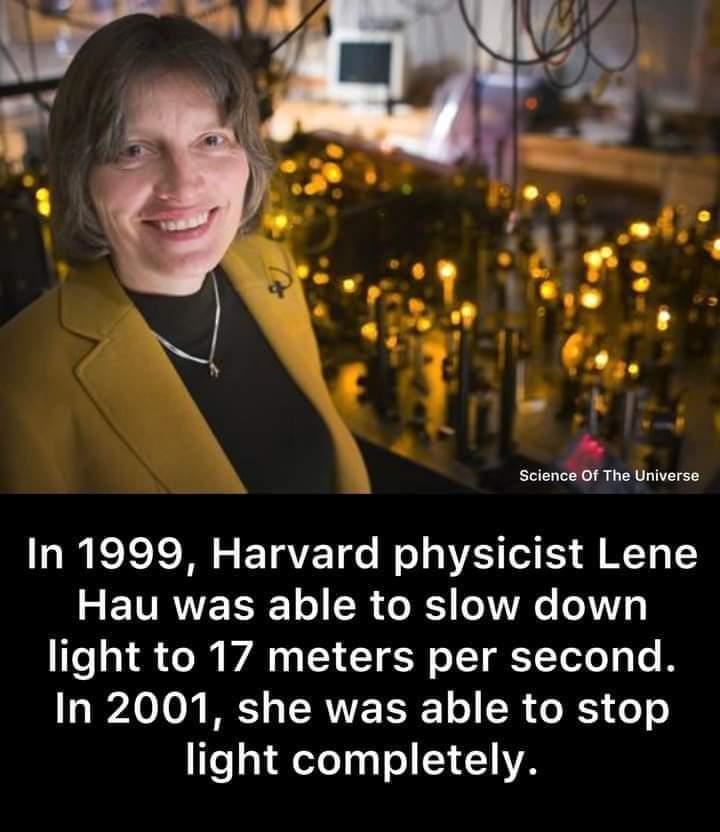
Lene V. Hau; Slows down the fastest thing i.e Light

In 1999 the Danish physicist Lene V. Hau managed to slow down the fastest thing we know: light. Since then she has continued her work with light at Harvard University. In her latest experiment, she not only stopped the light but also moved it around, manipulating it for half a minute, before she made it reappear.
”We can hold on to the light, move it around or even save it for later. We can actually manipulate it, “ says Lene V. Hau in an interview with ScienceNordic after her talk at the annual Hans Christian Andersen (HCA) lecture at The University of Southern Denmark.
Lene V. Hau gives new meaning to the speed of light
It may sound incredible that light, which usually moves at 300,000 kilometres per second, can be stopped and packed away for a rainy day. After many years of research and experiments with lasers, cooled atoms, and other instruments and techniques it has become possible to control light.
In the laboratory, Hau used Bose–Einstein condensation. This means cooling down atoms in a gaseous state to extremely low temperatures near absolute zero at minus 273.15 degrees.
“The temperature is down to about a billionth of one degree above the absolute zero,” says Hau.
The light is compressed with a coupling laser, Hau shone a beam of light – a light wave – through the Bose-Einstein condensate. The cold environment of the condensate not only slows down the light but also compresses it.
Coupling laser light is special because it couples together two energy levels of the molecule to make a superposition. Inside the condensate, the light from the coupling laser is compressed from one kilometre long to only 0.02 millimetres.
“Once the lightwave is inside the Bose-Einstein condensate, we turn off the laser. Though the light is gone, it leaves a distinct imprint behind in the atom cloud,” says Hau.
This process creates a sort of cast of light in the actual matter — an imprint.
Using such an imprint, Hau has shown that it is possible to save the light wave and even move it around for up to half a minute. This also means moving it out of the condensate where it was created.
“We can slow it [the light] down, stop it, and move it around, and then create a copy of it in a new place,” explains Hau.
Manipulating light is possible to manipulate the cast of light, says Hau.
“We can make changes to the cast of light, which will then become apparent when we make it into the light again. So it’s not just a way to store light but also to manipulate it.”.
How can you manipulate the light wave? Could you for example change the colour of the light?
“In principle, you could change the colour of the light, yes. But for information processing it’s probably more important to change the shape of the light pulse so you get a different amplitude variation or a different phase,” says Hau.
What can we use it for?
Lene V. Hau explains, ”The aim has been fundamental research, that is, learning new things about nature. In the long term, I think, we might be able to use it for areas such as information processing in both areas of classical information and quantum information”.
The manipulation and storing of light could prove to be a step towards the development of quantum computers.








